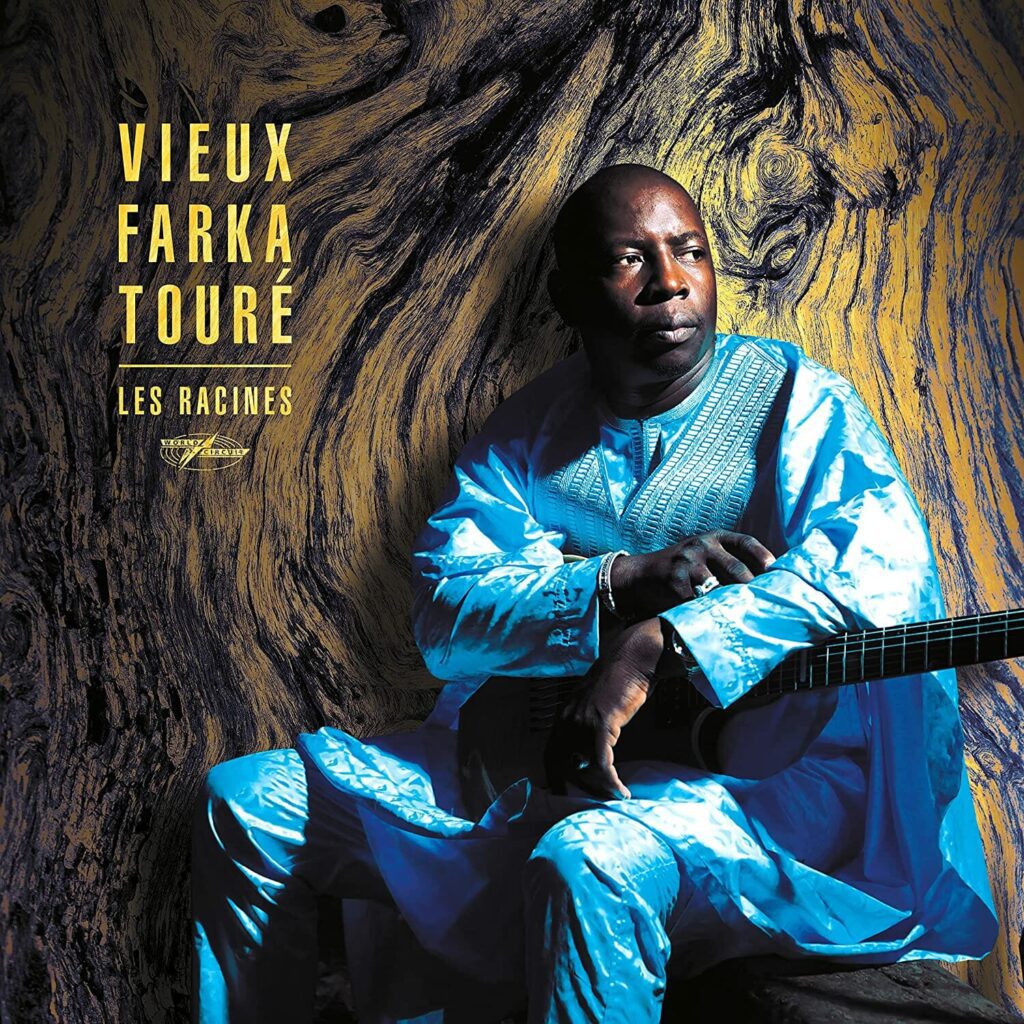
For years, Vieux Farka Touré was known primarily as the son of Malian musical hero Ali Farka Touré. But, with a substantial, 16-year discography to call his own, the younger artist—he is now in his early 40s—has long since established his own bona fides, and with Les Racines, he takes a break to pay tribute not so much to his late father but to the music of northern Mali often termed desert blues or Songhai. Vieux Farka Touré has never been a strict traditionalist—he has invited folks like Dave Matthews, Derek Trucks and John Scofield to join him on record—but he also never fully leaves his cultural ties behind. Some of the music on Les Racines might feel more akin to Tinariwen or even Amadou and Mariam than Ali Farka, but Vieux Farka Touré’s careful sonic balance continuously gives him a push into modernity that the others often lack: The album, his sixth solo effort, might be pitched as an homage to the roots (that’s what Les Racines translates to, after all), but it’s equally a step away from them. Recorded at his home studio in Bamako, Mali, Les Racines makes sure to spotlight Touré’s spellbinding guitar work. While not imitative of his father’s style, there are enough similarities to leave no doubt that they come from a common sensibility. It’s there, in your face, on the spare “Tinnondirene,” as much Delta blues as Saharan, and especially on “L’ame,” an instrumental so rhythmically winding that you’ll get lost in it—and never want to get out. The title track sways and gallops; “Ngala Kaourene,” with its call-and-response vocals, commands involvement; and the album-closing “Ndjehene Direne” is what might’ve happened if Chuck Berry was born in Bamako rather than St. Louis. If you didn’t know what Malian music was all about before giving this a spin, then you will by the time it draws to a close.
